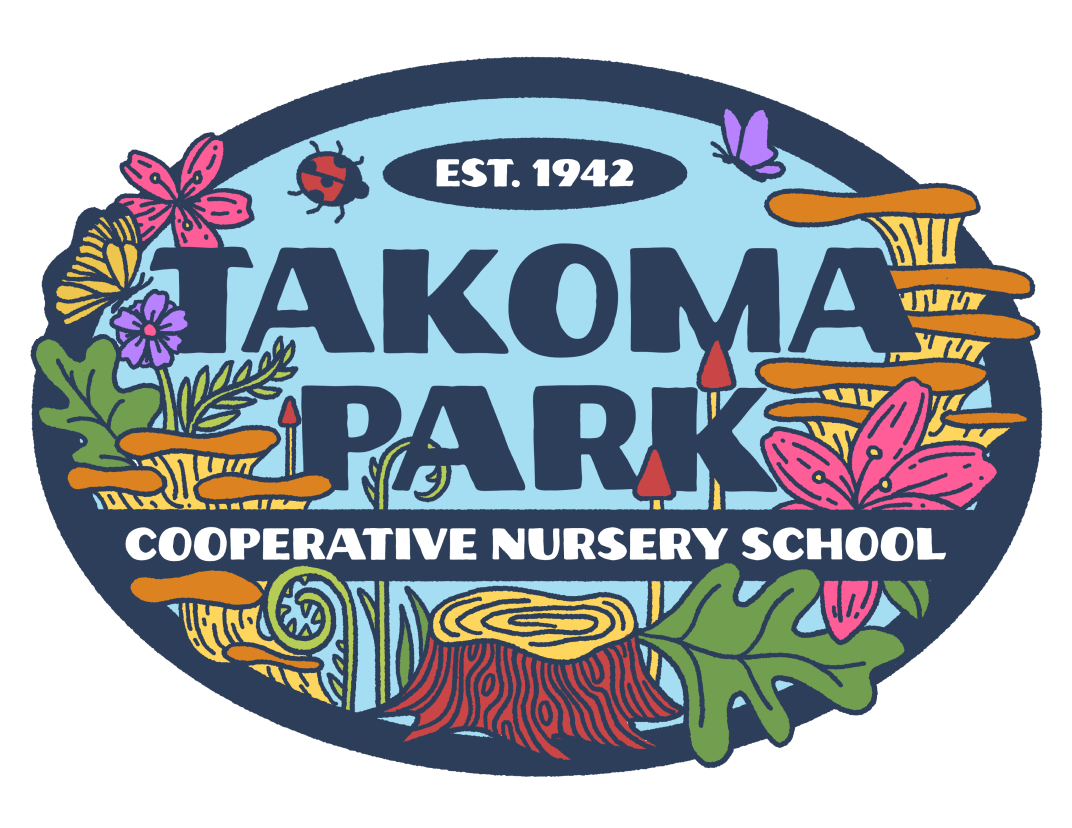Roughhousing
It is like they say, sometimes the magic happens outside your comfort zone. I must admit that I am not personally a fan of roughhousing. I did not roughhouse when I was younger and I am more comfortable with heavy work that involves rolling stumps or rearranging furniture and blocks. Roughhousing is vital for some children though! Please see New York Times and an earlier blog post from Emory Luce Baldwin talks about how roughhousing should be included in "easy fun for families".
We create a time and space for small play and we also have to create a time and space for rough play although it usually occurs in the 4/5s class. This year, the class is approaching roughhousing in a very funny way. Whenever they start, I can't help but think/hear phrases like, "Clash of the Titans," shouted in a big voice of a wrestling ring announcer, but see, that would be my adult lens distorting what was actually going on which is not fighting at all.
For some children turning 3 and just-4 years old, roughhousing is not so much a want as a need. The children are compelled to connect with others, but they often cannot apply any shape or rules to it in a group setting. It works better at home and in a one-on-one setting. During parent trainings for the 3/4s class, I call this "puppy play" because that is what it resembles. Since the children are just only then developing the structure of rule-governed play, it is our job to redirect the play or save it for home (see "Easy Fun For Families"). As children are 4 and turn 5, it is our job to create that time and space in the school day for those who need to roughhouse can and they are ready to shape it with their own rules.
This is how we approach it: the first thing the children establish is the "who wants to play", "who is playing", "safety rules", and then the "signal to stop". First rule of roughhousing club...only OUTSIDE in an open-space. Second rule of roughhousing club, "Know when to stop."
[gallery link="file" order="DESC" orderby="rand"]
This year, I could see from the play language that two of the children were signaling that a more formal structure was required for their roughhousing. They needed a wrestling ring. The wrestling ring brings its own gifts. You have children keen on drawing and redrawing the circle, so that is good because children interested in the idea of roughhousing, but not the actual thing, can still be involved.
The ring created its own rule...once you are pushed out of the ring, the round is over. That is also good because it is better than pulling/pinning down as the signal for wrestling. It is hard to hear say the word, "Strawberry" with your face pushed into the mulch. The downside of the ring visual is that children were keen on cheering for one or the other roughhouser. This is in direct violation of our City of Takoma Park zip code's ordinances which clearly state that everyone is a winner (big smile!). More importantly, it breaks the second rule of roughhousing, "Know when to stop." With all the hollerin' and a noise, the roughhousers couldn't hear the safe word. We talked about it and voted out the cheering option.
